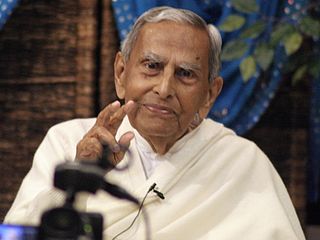A Quote by Frederick Lenz
In Buddhist Yoga, we refer to our mutlilife karmic traits as samskaras. They are the internal karmic patterns that make each of us who we are.
Related Quotes
What brings the karmic result from the patterns of our actions is not our action alone. As we intend and then act, we create [our] karma: so another key to understanding the creation of karma is becoming aware of intention. The heart is our garden, and along with each action there is an intention that is planted like a seed. The result of the patterns of our karma is the fruit of these seeds.
From a Buddhist point of view, the actual experience of death is very important. Although how or where we will be reborn is generally dependent on karmic forces, our state of mind at the time of death can influence the quality of our next rebirth. So at the moment of death, in spite of the great variety of karmas we have accumulated, if we make a special effort to generate a virtuous state of mind, we may strengthen and activate a virtuous karma, and so bring about a happy rebirth.
The law of karma is neither fatalistic nor punitive; nor is man a hapless, helpless victim in its bonds. God has blessed each one of us with reason, intellect and discrimination, as well as the sovereign free will. Even when our past karma inclines us toward evil, we can consciously tune our inclination towards detachment and ego-free action, thus lightening the karmic load.
When you plant a seed of love, it is you that blossoms. Ma Jaya Sati Bhagavati The 11 Karmic Spaces: Choosing Freedom from the Patterns That Bind You There are two kinds of faithfulness in love: one is based on forever finding new things to love in the loved one; the other is based on our pride in being faithful.



























